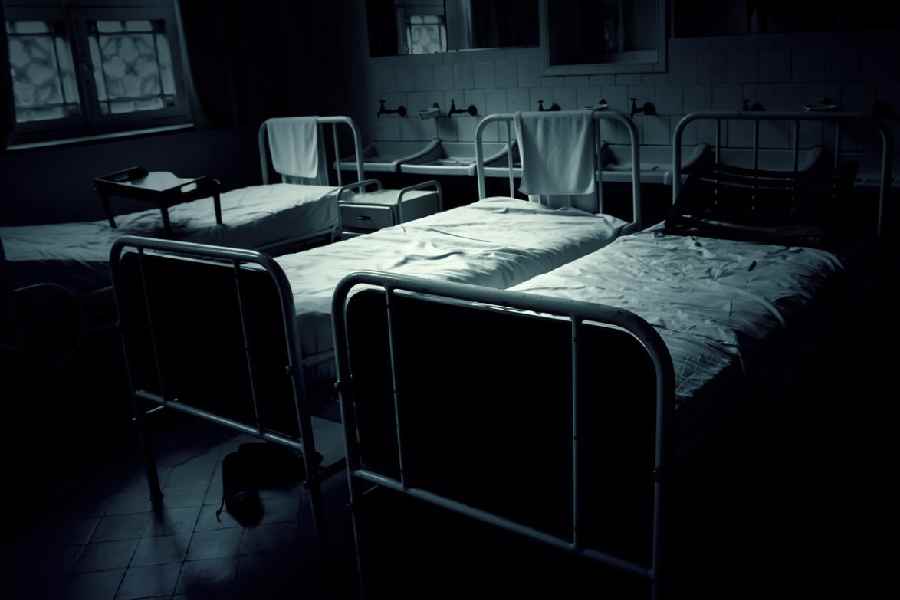Sometimes beauty and faith extend their embrace in places where you least expect them to. This story is set in the cancer ward of a government hospital in Calcutta. Let me not mince my words, I was apprehensive about the visit to say the least, although there were no two ways about it. The person I was to visit and her situation were far more important than my weak self.
In the large hall were about 30 women, almost all of whom were undergoing varying phases of chemotherapy. It was late morning and a good many of them were up and about, conversing with their respective visitors. What became apparent immediately was their familiarity with one another. The person I had gone to visit had been there for just a day, but she seemed to know everyone and everyone seemed to know her.
“I have massaged her fingers and her hand movement is better today,” said a clear voice, which I somehow felt was directed at me.
And there she was, two beds away. Sitting with her legs folded in padmasana position was a middle-aged, bespectacled woman with cropped hair, exuding a certain confidence and authority. Friendliness too.
She was Beautydi. Her whole being was.
Everyone seemed to want to be in touch with Beautydi; she generated that kind of cheer. Amidst all that was happening around, she spoke of life and death with ease. She was also a yoga practitioner and had become some sort of a guardian angel, the wise woman of the cancer ward. Some of the women had already done the little neck, arm and foot exercises she taught them.
One cannot say how much these things helped improve their physical condition, but what was certain was that they were sharing some precious intangibles. And that, as experts say, is half the work done.
“Till yesterday they didn’t know each other, now everyone is talking to one other,” said Beautydi. In a few minutes, I was acquainted with her story. This was the second time the disease was in her. The first was 10 years ago, when she got treated at a private hospital. “We spent Rs 10 lakh there, and I was completely cured, they said. But this disease is stubborn, one has to deal with it with a tough hand. This time I told my husband very clearly — there is no need to drain all our resources, I am going to a government hospital.”
Beautydi has a grown-up son. He had visited her the night before with her favourite chilly chicken and fried rice. Chinese food, in here? Looking at my dilated eyes, she said, matter-of-factly, “I do what I have to do, and let the doctors do their bit.”
And that she does. Beautydi was a schoolteacher before her son was born. Now she is just a teacher. I learnt all that keeps her busy at home in Behala, the things she does in her neighbourhood. “I don’t charge money for anything,” she declared. Yes, some services are beyond any quotable price, and it’s easy to forget that in today’s world but for people like her.
I watched as she made a young woman sit opposite her, on her own bed, and showed her how to do pranayam. This woman was perhaps in her 30s but so frail that she could have passed for a teenager. Her eyes were downcast and her lips hardly moved, but she let Beautydi take over. Her head was covered by a dupatta and beyond the borders one could see she had no hair. She used to spend all day in bed, sometimes crying to herself. That was until Beautydi arrived.
Thanks to Beautydi, I shall also remember Sharmila, the pretty young woman who sat quietly on the edge of a bed, her freshly washed hair strewn on her back. Sharmila was looking after a precious one, who lay in front of her, emaciated and curled up. “Tell me, who would leave her husband and child to take care of someone who is not even a relation?” Beautydi said of Sharmila, adding, “That little girl is Sharmila’s neighbour and has no one at home who can stay with her here.” The woman in question only smiled.
It isn’t possible to even fathom — much less express in words — the ailment that is inside all those women. But at least for a few days, they had a bit of Beauty in their lives.











